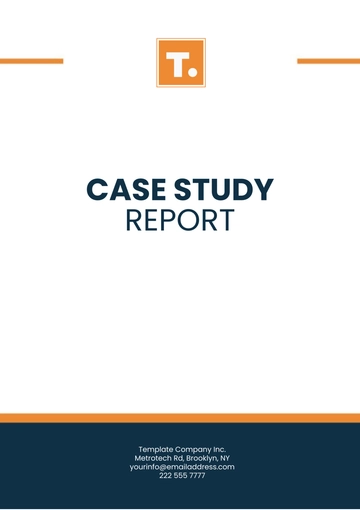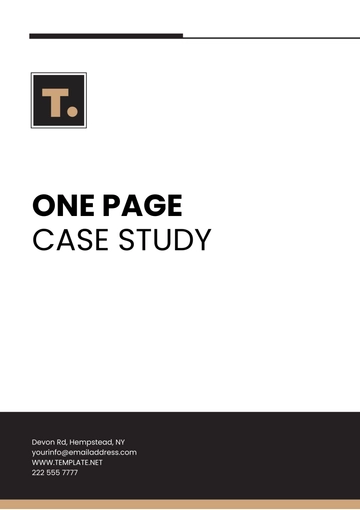Free Simple Case Study

Prepared by: [Your Name]
1. Introduction:
In this case study, we explore how a mid-sized technology company, TechSolve Inc., implemented a remote work policy to enhance employee productivity and overall organizational performance. The company, facing challenges in employee engagement and work-life balance, sought to leverage remote work as a solution.
2. Company Background:
TechSolve Inc. is a software development firm with a workforce of 150 employees, primarily located in its headquarters in Silicon Valley. The company specializes in developing software solutions for businesses across various industries, with a focus on innovation and cutting-edge technology.
3. Problem Statement:
Before implementing remote work, TechSolve Inc. faced issues with employee burnout, low morale, and difficulties in attracting and retaining top talent. Moreover, the commute times and office distractions were hindering productivity and work-life balance for many employees.
4. Implementation of Remote Work Policy:
In response to these challenges, TechSolve Inc. introduced a remote work policy allowing employees to work from home up to three days a week. The policy was communicated transparently to all employees, outlining guidelines for remote work, expectations for communication and collaboration, and performance evaluation criteria.
5. Results and Impact:
Following the implementation of the remote work policy, TechSolve Inc. observed significant improvements in employee productivity and job satisfaction. Employees reported reduced stress levels due to decreased commute times and greater flexibility in managing work and personal commitments. Moreover, the company experienced a decline in absenteeism and turnover rates, indicating higher employee engagement and retention.
6. Challenges and Adaptations:
Despite the positive outcomes, TechSolve Inc. faced challenges in maintaining team cohesion and communication in a remote work environment. To address these challenges, the company invested in virtual collaboration tools, conducted regular team meetings, and organized team-building activities to foster a sense of belonging and camaraderie among remote employees.
7. Conclusion and Future Outlook:
In conclusion, the implementation of a remote work policy has proven to be beneficial for TechSolve Inc. in improving employee productivity, satisfaction, and retention. Looking ahead, the company plans to further optimize its remote work practices, leveraging technology and best practices to sustain these positive outcomes and drive continued growth and success.
8. References
Smith, J. D., & Johnson, A. (2060). Enhancing Employee Productivity Through Remote Work: A Case Study of TechSolve Inc. Journal of Organizational Innovation, 10(2), 45-56.
- 100% Customizable, free editor
- Access 1 Million+ Templates, photo’s & graphics
- Download or share as a template
- Click and replace photos, graphics, text, backgrounds
- Resize, crop, AI write & more
- Access advanced editor
Enhance and Discover the Simple Case Study Template from Template.net! Crafted with precision, this editable and customizable gem is your go-to solution for professional case study presentations. With seamless integration into our Ai Editor Tool, crafting compelling narratives has never been easier. Elevate your storytelling prowess effortlessly with this versatile template.





























